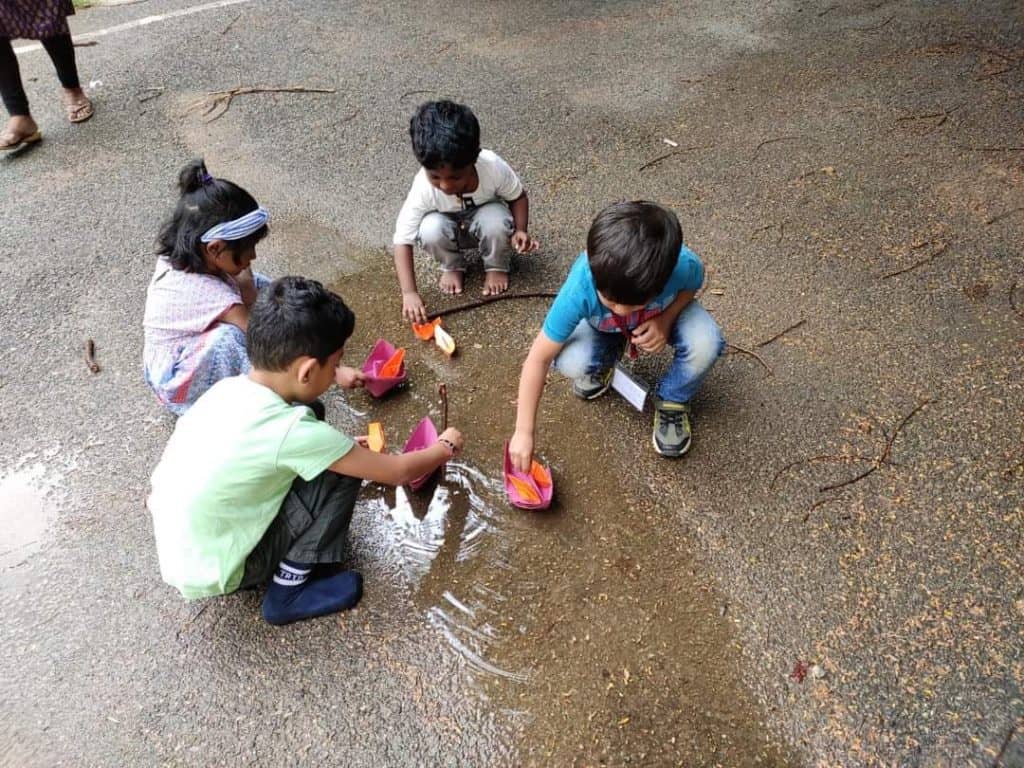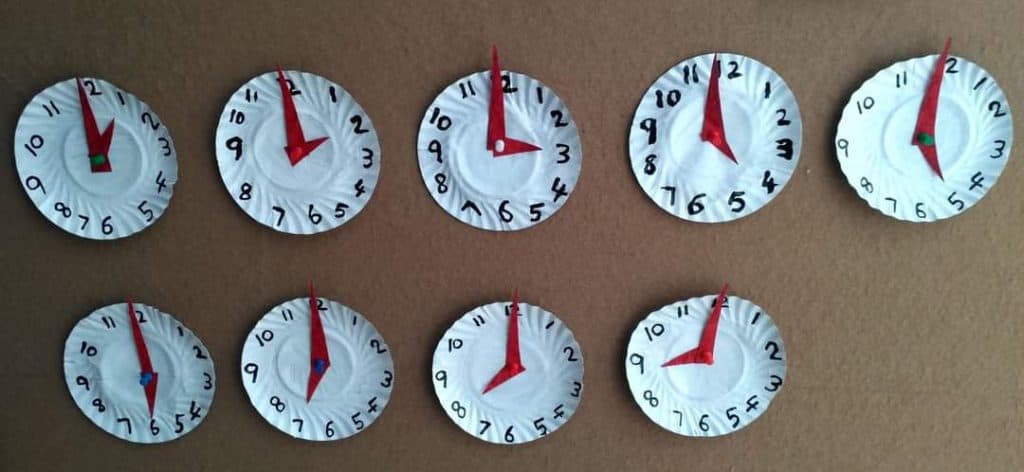Since the first case of COVID in January 2020 and the national lockdown from March 2020, there has been a barrage of guidelines, rules and regulations for every sector and every aspect of our lives. Yet, preschools and daycare centres, a lifeline for working parents, were totally overlooked.
Preschools have neither figured in any notification nor in any help package. A staggering number of such centres in the city have closed down. The staff, owners, parents and most importantly the children, have all been adversely affected.
Informal estimates from discussions with preschool owners indicate that over 4000 preschools and daycares have closed in Bengaluru in the past year and a half. Often operating in rented spaces and entirely dependent on year-on-year registrations, their owners have struggled to carry forward after the national lockdown in March 2020.
Read more: Pandemic takes the fun out of preschool
Preschools, daycares: Unseen, unacknowledged
Most preschool owners this correspondent spoke to said they cancelled their summer school programmes in 2020 and hoped to resume operations from June 2020. Nitesh Krishnappa is one of them.
“Around that time everyone prepares for special programmes and transitions to the next level. However, after the lockdown everything was cancelled. We could not prepare the children or parents,” says he. Nitesh hoped things would resume after a few weeks. As the lockdown continued, his preschool space was turned into a kitchen for front-line workers.
Latha Madhusudan, a senior educationist who runs Prakriti, a Waldorf kindergarten, is thankful that parents who had full-time jobs kept her centre afloat. There were no new admissions and numbers came to half. She called for a parents’ meeting and decided to go the community-schooling way.
“We started talking to parents and came up with a model. We packed paints, paper, clay and wool and sent it to their homes. We created podcasts for children to listen to and we had online meetings (through skype/zoom) with parents to explain and help them to do these activities with children at home. Initially parents were excited but later they started complaining that children weren’t listening,” says Latha.

Teachers note that parents realised how much work early childhood care practitioners put in to teach children various life skills. “Parents had to get really involved. Now parents have started taking an active role in learning but it is not easy. Schools have tried online classes for a couple of days of the week and recording videos but there are not many takers for that,” says Jyotsna Arun.
Jyotsna closed her preschool and daycare as she could not afford to keep paying the rent of around Rs 50,000 a month, without any income. The number of students in her preschool dropped from about 60-70 to 10 after the first lockdown.
Hanging on was a challenge for both preschool chains and stand alone units. Hajira, who runs Bachpan Play School, said they could not take a chance with safety measures as the risks were high. “Our focus is preschool. From around 120-130 kids we came down to only 25 kids this year. We have to keep it going. But it is a real struggle.”
Nitesh Krishnappa, who tried forming an association of preschools, coordinated with many establishments to approach the government. Many hoped that some help would come. “Many of them, especially women entrepreneurs, moved stuff to warehouses, hoping there could be some policy and they would restart in a new rented space. But till today nothing has come.”
Nitish says roughly 10,000 preschools and daycares would have closed down in Bengaluru alone. The number in Karnataka would be almost 40,000, he says. This, after many entrepreneurs put up their preschools for sale earlier on.
Glaring lack of policy
When schooling commenced through online education — after the total lockdown was lifted — preschools and day cares too tried holding online classes. Then, studies alerted policy-makers to the ill-effects of increased screen time and also poor efficacy and outreach of online education. Following this, the government issued a notification that students until Class 5 should not be made to attend online classes and curtailed the duration of online classes.
Preschools and parents have also experimented with getting teachers home, to conduct “play school” sessions. These sessions are for a small group of children who assemble at one student’s house for an hour or so. Teachers have also independently conducted online classes, charging per session. However, for children in LKG and UKG, parents have to accompany the child online as well.
Latha says, when the unlock guidelines came, they tried a bubble meet for students, wherein five students would meet one teacher, listen to a story and play in the school. The school has not only tried a hybrid model with kits and an online session with parents, but also tried to have tailor-made schedules for different families. They even sent gifts on birthdays, called and spoke to the children.
Latha’s preschool went two steps ahead and recognised the need for mental health support. They held online prayer meetings and meditation programmes for parents, especially during the second wave when everyone seemed to be affected and lost someone they knew.
Many other preschools and daycares also experimented with home-kits and one-on-one meetings with parents and children. However, with the risk of infection constantly hovering, neither the parents nor the schools are in a position to take any concrete measures. The government’s indifference has not helped either.
At present many preschools are conducting online classes with no more than five children in one session. The sessions go on for about an hour with activities such as reading, writing, painting, exercising, crafts, singing and dancing – all need to be assisted by parents.
With restrictions on screen time, “home-work” is the only way to get “syllabus” done, say many teachers and parents. Naturally, parents are struggling to manage for various reasons including increased working hours in the WFH system.

Read more: Virtual classes for younger kids: An uphill journey for both teachers and parents
Preschools, daycares: Who’s framing guidelines?
Most preschools also have a daycare facility for its students as well as for other children. The reason why children are sent to preschools is completely different from why they are enrolled in daycares. Preschools serve as foundations before joining the formal schooling system. They are meant to instill life skills, social skills and in some cases reading and writing.
On the other hand, daycares are places where a child can be safe, happy and taken care of while the parents are at work. Here, parents may not be in a rush to ensure the child learns the alphabet and numbers. Their look out is to keep the child engaged and happy while they spend hours logged into their jobs.
While preschools — which include play school, nursery, lower kindergarten and upper kindergarten — come under the purview of the department of education, daycares come under the department of women and child development.
When Citizen Matters asked various preschool and daycare owners if they had received any communication from either of the departments, most said they were waiting. They were unsure about whether they could open or not.
“We heard that BBMP was asking to close, when some tried to open. I understand that parents need help but if one child falls sick then it would have become a huge problem. The main thing is the government is not taking a stand on preschools and no rules or guidelines are coming out. We are creating our own guidelines,” says Jyotsna Serra.
This is echoed by almost all the preschool and daycare owners. Meena Sivaraman, who ran daycare facilities for corporates for over 20 years, closed during the lockdown. “My daycares were attached to companies. Initially everything was closed. Because the anganwadis were closed, the same applied to daycare centres. When the anganwadis opened, many daycares opened. But there haven’t been any strict rules. I couldn’t continue. This is unprecedented, uncertain and very complicated.”
Veena Galra, who runs Tiny Toddlers, said they restarted for just over a month in February but closed again. “We had a limit of five children. We picked nannies who are single and who don’t go anywhere else. We completed sanitisation and took permission from BBMP. We had thermal checks for children and parents and COVID tests for helpers every 15 days. But again we are closed and waiting to start. Let’s see.”
Messages and calls to the office of primary education minister B C Nagesh received was no response. The correspondent was informed that any announcement regarding preschools will be made after a decision is taken. Calls to other government departments that are related to preschools and daycares were met with responses that range from – “please check government website for COVID guidelines” to “this office won’t be able to answer this query.”
Post-COVID preschooling
Nitesh says that running preschools with precautions would be a good start for everyone. “Children will need special attention to come back to learning mode. The effect of COVID has to be factored. But at the moment, the biggest need is for them to have a safe place to socialise and perhaps recover from isolation-related issues. Moreover, the parents will also be relieved a little bit. Slowly the teaching can start.”
Latha points out that India is the only country where schools have remained closed this long. “Everybody agrees that online classes are not enough. There needs to be a balance between numeracy and literacy. Focus has to be on music, painting, dancing and playing until readiness for Grade 1 starts. The bubble method has been followed by many schools abroad. We need to think positively. Previous generations have gone through plagues and two world wars. We too can get through but we need to start,” she says.
But will the government first acknowledge these centres in the COVID guidelines?